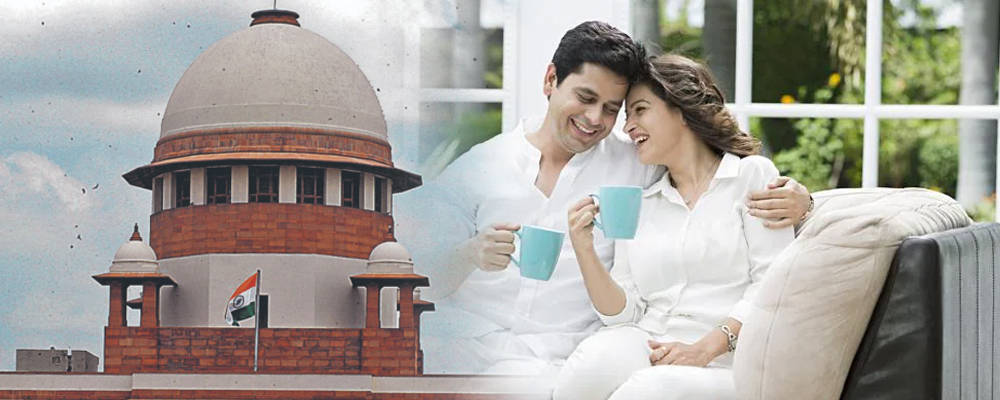Patterns of living in Indian society have drastically changed specifically within the last decade. People have gradually opened up their minds towards the idea of pre-marital sex and live-in relationships, but these concepts have lacked legality and acceptance by the society. In India only marriage is considered legal.
Live-in over Marriage:
- Couples are of the view that compatibility shall be checked before marriage.
- Exempts partners from the responsibility of family.
- Exempts from lengthy court procedures in case of break up
- No legal and social obligations on any Partner
Laws in India:
There is no legal definition of live-in relationship and Indian laws do not give any rights or obligations to the parties of live-in relationship. However, the status and rights of live-in relationship has been clarified by the courts through various judgements, yet few rights have been granted by interpreting and amending existing legislations in order to prevent the misuse of such legislations.
Domestic Violence Act, 2005
Domestic Violence Act, 2005 (Pwdva), the legislature has acknowledged live-in relationships by giving rights and protection to those females who are not married, rather are living with a male individual in a relationship, which is in the idea of marriage, additionally akin to wife, however she is not equivalent to wife.
Though live-in relationships are not categorically defined in the Act, but are left at the court’s discretion.
Courts presume live-in relationships to be covered under the ambit of marriage and are considered as the same. This gives female some legal rights to protect themselves from the abuse of fraudulent marriage and bigamous relationships.
Criminal Procedure Code:
Section 125 CrPC was incorporated in order to avoid vagrancy and destitution for a wife/minor children/old age parents, and the same has now been extended by Indian laws to partners of a live-in relationship.
However, in a legal debate it was concluded that a divorced wife can be treated as wife under Section 125 CrPC and can claim maintenance and as for partners when they are not legally married, they cannot give divorce each other and hence cannot claim maintenance under this section.
Need A Legal Advice
The internet is not a lawyer and neither are you. Talk to a real lawyer about your legal issue

Evidence Act:
The court may presume the existence of any fact which it thinks likely to have happened, regarding the course of natural events, human conduct and public and private business, in a relation as to the facts of the particular case. Therefore, where a male and a female live respectively, for a long spell of time as a couple then there would be an assumption of marriage.
In Ramdev Food Products V. It was held by the Supreme Court, that a living relationship comes within the ambit of right to life under Article 21 of the Constitution of India. The Court further held that live-in relationships are permissible and the act of two major living together cannot be considered illegal or unlawful.
Legal status of children:
In S.P.S. Balasubramanyam vs. Suruttayan supreme Court held, “If a man and woman are living under the same roof and cohabiting for some years, there will be a presumption under Section 114 of the Evidence Act that they live as husband and wife and the children born to them will not be illegitimate.”
In Tulsa v. Durghatiya, the Supreme Court held that, “a child born out of such a relationship will no longer be considered as an illegitimate child. The important precondition for the same should be that the parents must have lived under one roof and cohabited for a significantly long time for the society to recognise them as husband and wife and it should not be a “walk-in and walkout” relationship
Thus, there are no clear laws that specifically govern matters related to succession, maintenance, guardianship in regards to live-in relationships. However, for Protection of Women from any violence legislature has acknowledged the right of partners living in a live-in relationship to get protection. It has been recognised live-in relationships through various judgments that individuals of the relationships can be protected from abuse. On the contrary, courts frequently declined to take any kind of positive steps towards legalising live-in relationships.





 Talk to a Lawyer
Talk to a Lawyer